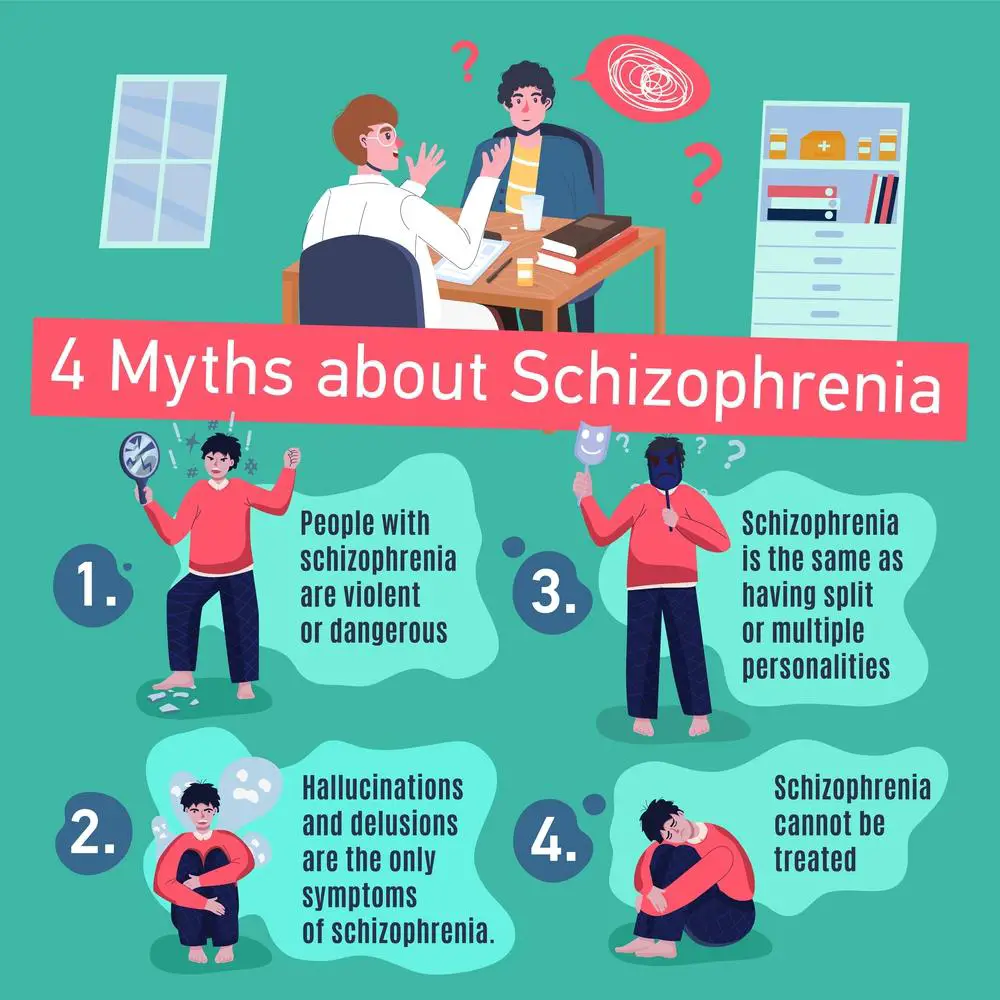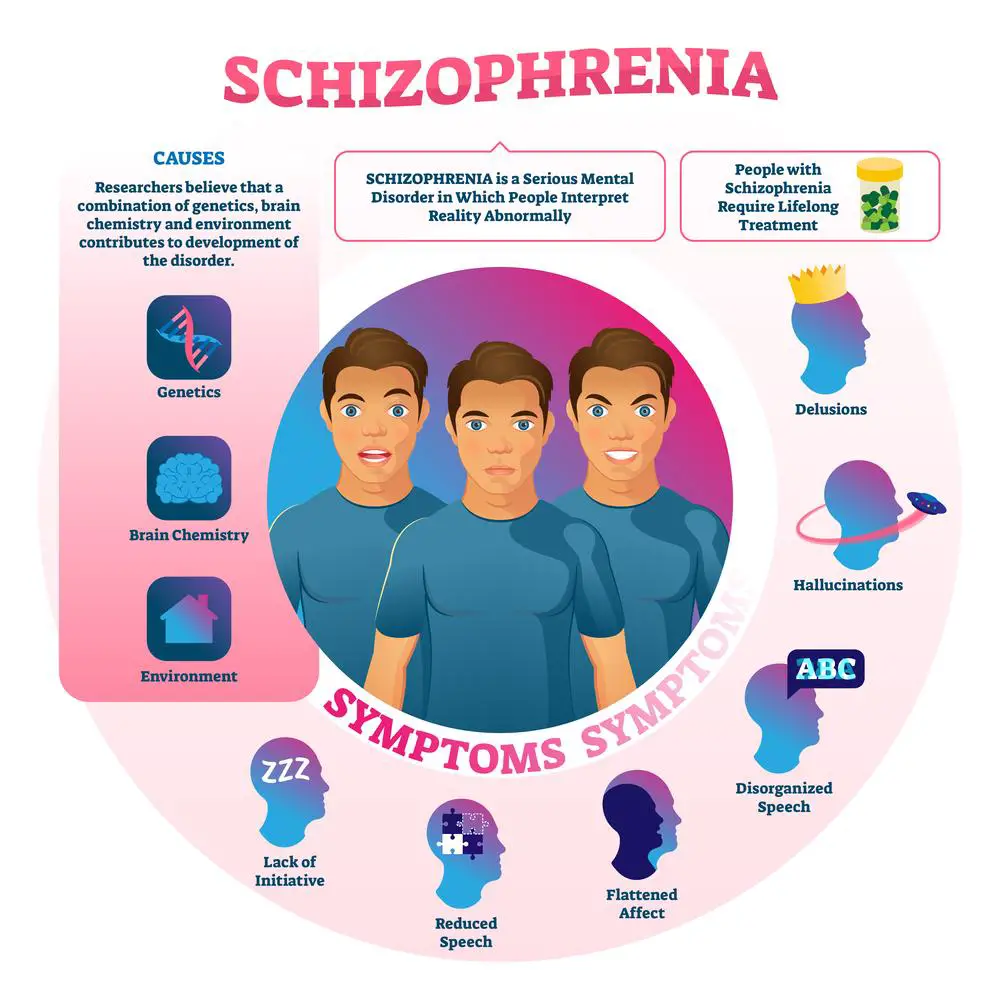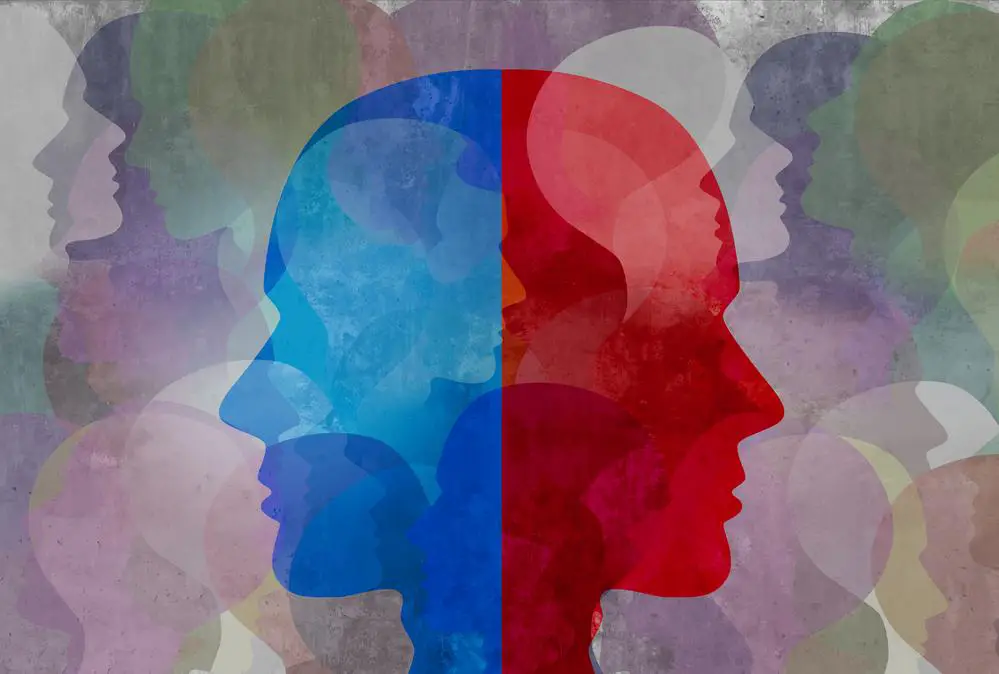As a BetterHelp affiliate, we receive compensation from BetterHelp if you purchase products or services through the links provided
Understanding the relationship between schizophrenia and sleep patterns is essential for both patients and healthcare providers. Schizophrenia is a severe mental health condition that affects millions of individuals worldwide. It is characterized by a distorted perception of reality, which might include hallucinations, delusions, and disorganized thinking. One common question is why individuals diagnosed with this condition sleep so much.
There are several reasons why someone with schizophrenia might sleep more than the average person. Factors such as medications, mental health conditions, and the general effect of schizophrenia on a person’s life contribute to these extended sleep patterns. In this article, we will explore the reasons behind the increased sleep observed in individuals living with schizophrenia and how it can be effectively managed.
Key Takeaways
- Schizophrenia is a complex mental health condition that can affect sleep patterns.
- Medications, mental health factors, and lifestyle elements contribute to increased sleep in schizophrenics.
- Proper management strategies can help improve sleep quality and overall well-being for individuals with schizophrenia.

Understanding Schizophrenia
Schizophrenia is a complex mental disorder that affects your thoughts, feelings, and behaviors. Its symptoms can be quite diverse and sometimes challenging to recognize. But don’t worry; in this section, we’ll discuss the primary aspects of schizophrenia, allowing you to understand this condition better.
First, let’s discuss the symptoms. They are typically divided into two categories: positive and negative. Positive symptoms include hallucinations, delusions, and disorganized behavior. These are the manifestations of schizophrenia that are often easiest to notice. Hallucinations, particularly auditory ones, cause people to hear voices that aren’t there. Delusions are false beliefs that don’t align with reality. Disordered behavior might include misbehaving or disorganized speech.
Negative symptoms, on the other hand, refer to the absence of normal functioning. They can sometimes be more challenging to identify. Examples include a lack of emotion, difficulties in social interactions, and loss of motivation. People with negative symptoms might also have trouble completing daily tasks.
The Diagnostic and Statistical Manual of Mental Disorders (DSM-5) is the primary source for diagnosing schizophrenia. According to the DSM-5, a person must experience at least one psychotic episode (featuring positive symptoms) and some negative symptoms to be diagnosed with schizophrenia.
Now, let’s discuss how schizophrenia affects sleep. People with this disorder often experience sleep disturbances, and they might sleep more than the average person. There’s no one-size-fits-all answer to why this is the case, but it could be linked to the medications prescribed to manage schizophrenia or the impact of its symptoms on daily life.
Here’s a quick recap of what we covered:
- Schizophrenia is a complex mental disorder with diverse symptoms.
- Positive symptoms include hallucinations, delusions, and disordered behavior.
- Negative symptoms refer to the absence of normal functioning.
- The DSM-5 provides diagnostic criteria for schizophrenia.
- Sleep disturbances are common in people with schizophrenia.
By understanding the basics of schizophrenia, you are better equipped to empathize and support those who may be experiencing this disorder.
 Effect of Schizophrenia on Sleep
Effect of Schizophrenia on Sleep
Living with schizophrenia can have a significant impact on your sleep quality. It’s common for those with schizophrenia to experience sleep disturbances, like insomnia and excessive daytime sleepiness. Let’s delve deeper into the relationship between schizophrenia and sleep.
One issue you might face is insomnia, which makes it difficult to fall or stay asleep. It can be frustrating as you toss and turn through the night, seeking the rest your body needs. This disturbed sleep can further contribute to the challenges you may already be experiencing due to schizophrenia.
On the other hand, you might encounter excessive daytime sleepiness, where you feel tired during the day, even after a night of seemingly restful sleep. This can interfere with your daily activities and overall quality of life.
Not to mention, snoring might be another concern. While not directly linked to schizophrenia itself, snoring can disrupt your sleep and contribute to nighttime awakenings, affecting your overall sleep quality.
To better manage these sleep disturbances, it’s essential to maintain good sleep hygiene, including:
- Sticking to a regular sleep schedule
- Creating a comfortable sleeping environment
- Limiting exposure to screens before bedtime
- Being mindful of caffeine and alcohol consumption
Remember, sleep is crucial for maintaining overall health, especially for those with schizophrenia. By understanding the relationship between schizophrenia and sleep and taking the necessary steps, you can improve your sleep quality and give your body the rest it deserves.
Why Schizophrenics Sleep So Much
Sleep is essential for maintaining overall health, especially for people with schizophrenia. As you might know, schizophrenia affects the brain and its functions. Let’s explore why individuals with this condition may sleep more than others.
One reason is that the brain’s ability to process stress is impacted by schizophrenia. When facing increased stress, the body often responds by feeling exhausted and requiring more sleep. While sleeping, your brain has the chance to recharge and process emotions more effectively.
Moreover, schizophrenia and aging have a connection when it comes to sleep. As you age, your sleep patterns may change and become more fragmented. For people with schizophrenia, this can amplify the need for more sleep, as the added stress and changing brain function further strain their ability to cope.
Emotions play a significant role in sleep as well. Schizophrenia can cause emotional disturbances that make it challenging to maintain a stable sleep pattern. By sleeping more, individuals with schizophrenia are allowing their brains to process and manage the different emotions they are experiencing.
Memory also plays a part in the sleep habits of people with schizophrenia. Sleep is crucial for consolidating memories, and a lack of sleep can impact memory function. Since schizophrenic individuals may have trouble with memory formation, an increased need for sleep can help compensate for this deficit.
So, here are a few key takeaways:
- Schizophrenia affects the brain’s ability to process stress, emotions, and memory.
- Aging and sleep patterns can lead to more fragmented sleep in schizophrenic individuals.
- More sleep can help manage emotional disturbances and improve memory consolidation in people with schizophrenia.
By understanding the connection between schizophrenia and sleep, you can better support your loved ones facing this condition. Remember that sleep is essential not only for physical health but also for mental well-being. Don’t hesitate to reach out to professionals for advice on managing sleep and schizophrenia.

Link between Schizophrenia and Mental Health Conditions
Are you curious about the relationship between schizophrenia and other mental health conditions? It’s important to understand that schizophrenia is a long-term mental health disorder, and it’s closely related to conditions such as depression and anxiety. Let’s delve deeper into this fascinating connection and learn how these conditions relate.
Firstly, it’s common for individuals with schizophrenia to experience depression and anxiety. These conditions can sometimes be mistaken for one another due to overlapping symptoms. Being aware of this link is crucial to diagnose and treat these conditions properly, as they often require different approaches.
- Many people with schizophrenia report feeling sad, hopeless, or lacking interest in activities they once enjoyed. This overlap with depression symptoms can make it difficult to differentiate between the two disorders.
- Anxiety, on the other hand, can manifest as excessive worry, panic attacks, or even social withdrawal in some people with schizophrenia. Recognizing these symptoms early can help lead to a correct diagnosis and treatment plan.
In addition to depression and anxiety, schizophrenia often coexists with other mental health disorders. Living with a chronic mental health condition can be challenging, and unfortunately, it can contribute to the development of other mental health issues.
- Comorbid conditions, such as substance abuse or eating disorders, can further complicate treatment and the road to recovery. It’s essential to address these additional issues to help individuals improve their overall mental health.
Key Takeaway: Schizophrenia has a strong connection to other mental health conditions like depression and anxiety. Awareness of this link is essential to diagnose and treat these conditions properly. Remember to consider the possibility of comorbid conditions and address them as part of a comprehensive treatment plan.
Medications and their Effect on Sleep
When managing schizophrenia, your doctor may prescribe medications to help manage your symptoms. One group of medications commonly used is antipsychotics. While these medications can be highly effective in relieving symptoms of schizophrenia, they may also impact your sleep patterns.
Antipsychotic medications are frequently prescribed to help alleviate hallucinations, delusions, and other distressing thoughts. These medications work in various ways, primarily by regulating dopamine and serotonin levels in the brain. However, some antipsychotics can cause drowsiness as a side effect, which can lead to increased sleepiness during the day and prolonged sleep at night.
While taking antipsychotic medications, you might experience:
- Drowsiness and daytime fatigue
- Disrupted sleep schedule
- Difficulty falling asleep or staying asleep
It’s essential to openly communicate with your doctor about how these medications affect your sleep. Minor adjustments to the medication dosage or timing could help you achieve a more balanced sleep pattern.
Tips for coping with sleep disruptions while on antipsychotic medications:
- Establish a consistent sleep schedule by going to bed and waking up at the same time each day
- Create a relaxing bedtime routine to signal to your body that it’s time for bed
- Limit exposure to screens and bright lights in the evening
- Make your sleep environment as comfortable as possible by adjusting room temperature, noise, and lighting to your preference.
- Engage in regular physical activity during the day, but avoid excessive exercise close to bedtime.
By understanding the potential effects of your antipsychotic medication on sleep, you can take steps to ensure a more restful and rejuvenating sleep experience. Remember that a balanced sleep routine is a vital part of staying mentally and physically healthy while living with schizophrenia.
 Psychotherapy and Schizophrenia
Psychotherapy and Schizophrenia
If you’re dealing with schizophrenia, psychotherapy can significantly improve your quality of life. Experts have developed various therapeutic approaches, but one of the most effective treatments is cognitive behavioral therapy (CBT).
CBT helps you identify and change negative thought patterns tied to your schizophrenia. By working with a skilled therapist, you’ll develop coping strategies and gain a better understanding of your illness. Throughout the process, you can also learn to manage your symptoms and reduce the impact of schizophrenia on your daily life.
During therapy sessions, you might cover topics such as:
- Challenging delusions and hallucinations
- Managing stress and anxiety
- Building social and problem-solving skills
- Engaging in self-help activities
In your journey to better mental health, establishing a solid support network is also essential. Family, friends, and peer support groups play a crucial role in helping you overcome schizophrenia’s challenges. There are specific therapies like family-focused therapy and social skills training designed to strengthen your relationships and improve your communication abilities.
Remember, engaging in psychotherapy may not provide instant results. It requires time, patience, and commitment on your part. However, with a positive attitude and persistence, you can significantly enhance your overall well-being and gain control over your schizophrenia symptoms.
So, why wait? Begin exploring psychotherapy options and get on the right track to manage schizophrenia. Your mental health is worth it.
Role of Genetics and Environment
It’s essential to understand that genetics and environment play crucial roles in the development of schizophrenia. Your genes alone don’t determine whether or not you’ll develop this mental disorder. External factors can also significantly influence the likelihood of becoming schizophrenic.
For instance, if you have a family history of schizophrenia, your chances of developing the condition might be higher. The genetic predisposition makes you more susceptible, particularly during adolescence, a critical developmental stage.
However, environmental factors, such as stress or trauma, can also act as risk factors for schizophrenia. These include:
- Childhood abuse or neglect
- Exposure to toxins or infections before or during birth
- Substance abuse, particularly during teenage years
- Living in an urban environment with high levels of stress and pollution
It’s crucial to realize that having genetic or environmental risk factors doesn’t necessarily mean you’ll develop schizophrenia. The interplay between genetics and environment is complex, and there’s still a lot that researchers need to uncover. What’s known is that the more risk factors you’re exposed to, the higher your chances of developing the disorder.
To lower your risk, you can focus on mitigating the environmental factors within your control. Some strategies to consider are:
- Try to reduce stress by practicing relaxation techniques like meditation, deep breathing, or yoga
- Be mindful of substance use, especially in your teen years, to minimize the impact on your developing brain
- Engage in therapy or counseling during difficult times to deal with stressors effectively
- Stay informed about your family history so you’re aware of potential vulnerabilities
In the end, the key takeaway is that a combination of genetics and environmental factors influences schizophrenia. You must be aware of your risk factors and adopt strategies to minimize their potential effects on your mental health.
 Impact of Lifestyle and Nutrition
Impact of Lifestyle and Nutrition
A healthy lifestyle can play a significant role in managing schizophrenia symptoms. Let’s dive into the aspects of lifestyle and nutrition that may affect your sleep patterns.
Nutrition: Consuming a well-balanced diet is essential for overall mental and physical well-being. Eating plenty of fruits, vegetables, whole grains, lean proteins, and healthy fats can help stabilize mood and energy levels. Specific vitamins, such as B vitamins (particularly niacin), have been noted for their potential benefits in managing schizophrenia symptoms. Including vitamin-rich foods in your diet can have positive effects on both your general health and sleep patterns.
Exercise: Regular physical activity can be a game-changer for your sleep. Engaging in moderate exercise, such as walking, swimming, or yoga, can help alleviate stress, boost your mood, and improve your sleep quality. Aim for at least 30 minutes of exercise most days of the week. Remember to listen to your body and not overdo it.
Here are some tips to incorporate healthy habits into your daily routine:
- Plan your meals to ensure you’re getting a balanced diet.
- Try to include vitamin-rich foods, such as whole grains, leafy greens, and lean meats.
- Schedule regular exercise sessions, opting for activities you enjoy and can stick with in the long run.
- Consider seeking guidance from a nutritionist or healthcare professional to design a dietary plan tailored to your needs.
By making conscious choices about what you eat and how you live, you can positively influence your sleep patterns and ultimately manage your schizophrenia symptoms better. Remember, every small step counts towards a healthier lifestyle.
Potential Complications
When it comes to schizophrenia and excessive sleep, certain complications may arise, particularly when it comes to health issues. Let’s delve into some possible complications that could impact your well-being.
Diabetes: Sleep disturbances are commonly associated with an increased risk of developing type 2 diabetes. When you sleep too much, your body may experience fluctuations in blood sugar levels, which can lead to insulin resistance. Moreover, the medications used to manage schizophrenia symptoms may also contribute to your risk of developing diabetes.
Cardiovascular Disease: Prolonged sleep can increase your chances of developing cardiovascular diseases. The reason is that excessive sleep might lead to poor physical activity and an unhealthy lifestyle. Furthermore, antipsychotic medications, which are often prescribed for schizophrenia, may have side effects that can negatively impact your heart health.
Breast Cancer: While no direct link between schizophrenia and breast cancer has been established, it is essential to note that certain antipsychotic medications may cause hormonal imbalance, leading to an increased risk of breast cancer.
To keep your health in check, consider the following tips:
- Strive for a daily routine with regular sleep patterns.
- Avoid caffeine, nicotine, and alcohol before bedtime.
- Create a calming and comfortable sleep environment.
- Discuss any concerns about your medication with your healthcare provider.
Remember, maintaining good health habits and keeping a close eye on your overall well-being can help mitigate the risks associated with excessive sleep and schizophrenia.
Coping Strategies
Dealing with schizophrenia can be challenging. Fortunately, there are some proven coping strategies that can help you manage your symptoms and cope with day-to-day life.
One way to deal with intrusive thoughts, concentration problems, and voices is to practice mindfulness meditation. This technique helps you focus on your breath or body sensations and allows you to bring your attention back whenever your mind wanders gently. By doing this regularly, you’ll improve your concentration and learn to observe passing thoughts without becoming overwhelmed.
It’s common to experience agitation or anger, especially when you feel overwhelmed or misunderstood. In these situations, try some simple breathing exercises. Taking slow, controlled breaths can lower your heart rate, reduce tension, and transmit calming effects to your brain.
Isolation may sometimes feel like your only option, but connecting with others is vital for maintaining your emotional well-being. Consider joining support groups or seeking therapy, as they can be life-changing. You’ll find people going through similar experiences so you won’t feel alone.
To keep track of your thoughts and feelings, journaling might be helpful. Writing down your emotions and thoughts can help you reflect and identify patterns, providing valuable insight into triggers and how to manage them better.
When it comes to dealing with schizophrenia, it’s essential to experiment with different coping strategies and find what works best for you. Remember, you’re not alone, and seeking help is a sign of strength. Keep exploring and embracing self-care, and you’ll build resilience to manage your symptoms effectively.
Conclusion
In the end, both patients and healthcare professionals need to understand why schizophrenics may sleep so much. This knowledge can guide the treatment process and help patients manage their symptoms effectively.
In some cases, excessive sleep in schizophrenia patients may be attributed to the side effects of medication. Suppose you or your loved one is undergoing treatment. In that case, it’s crucial to have patience and work closely with your healthcare team to find the right balance of medications to alleviate symptoms without causing excessive drowsiness.
Furthermore, maintaining a consistent sleep schedule and practicing good sleep hygiene can significantly improve sleep quality. Here are some ideas to try:
- Establish a bedtime routine and stick to it
- Limit exposure to screens before bedtime
- Create a calm and quiet sleep environment
- Avoid excessive caffeine and stimulants before bed
Remember, finding what works best for you or your loved one’s unique situation is vital, and progress may take time. It’s important not to lose hope, as many people with schizophrenia have found successful ways to manage their sleep issues.
Ultimately, sleep is a critical factor in overall health, and this is no different for schizophrenics. By addressing sleep concerns, you can improve your mental and physical well-being, paving the way for better days ahead. Stay patient and diligent in seeking appropriate treatment, and you’ll find the path to better sleep and improved quality of life.
Frequently Asked Questions

Do schizophrenics have sleep issues?
Yes, many individuals with schizophrenia experience sleep issues. This is often because the symptoms of schizophrenia, such as hallucinations or racing thoughts, can make it difficult for people to fall asleep or stay asleep. In addition, medications used to treat schizophrenia can sometimes cause sleep disturbances.
Is oversleeping common in schizophrenia?
Oversleeping can occur in people living with schizophrenia. The reasons for oversleeping can be varied, ranging from side effects of medications to the general decline in the ability to function during the day. It’s important to note, however, that oversleeping is not universal among those with schizophrenia and can vary from person to person.
How much sleep is typical for schizophrenics?
Sleep patterns for individuals with schizophrenia can vary widely. Some may experience insomnia, while others may oversleep. On average, people with schizophrenia may sleep anywhere from 8 to 12 hours per day. However, this can change depending on factors such as medication, stress, and lifestyle.
What causes sleep problems in schizophrenia?
Several factors can contribute to sleep problems in schizophrenia. These include:
- Symptoms of the disorder, such as hallucinations or paranoia
- Side effects from medications
- Stress and anxiety resulting from living with the condition
- Lifestyle factors, such as poor sleep hygiene or lack of routine
Addressing these issues can help improve sleep for people with schizophrenia.
Can sleep aids help with schizophrenia?
In some cases, sleep aids may be helpful for people with schizophrenia who are experiencing sleep issues. This should be discussed with a healthcare professional, who can recommend appropriate medications and strategies based on each individual’s unique needs.
Do certain coping skills improve sleep for schizophrenics?
Yes, there are coping skills that can improve sleep for people living with schizophrenia. These include:
- Establishing a consistent sleep schedule
- Creating a relaxing bedtime routine
- Practicing good sleep hygiene, such as keeping the sleep environment dark, quiet, and cool
- Limiting exposure to screens before bedtime
- Reducing caffeine and alcohol consumption
Implementing these strategies can help those with schizophrenia achieve better quality sleep, allowing them to manage their symptoms better and maintain overall health.
- 3 Ways Wearing a Hat Can Help Lower Your Stress Levels - April 19, 2025
- Breaking the Silence: Why Men’s Mental Health Matters More Than Ever - April 15, 2025
- How to Transform a Home’s Patio Space into a Relaxing Space - March 23, 2025
This site contains affiliate links to products. We will receive a commission for purchases made through these links.


 Effect of Schizophrenia on Sleep
Effect of Schizophrenia on Sleep Psychotherapy and Schizophrenia
Psychotherapy and Schizophrenia Impact of Lifestyle and Nutrition
Impact of Lifestyle and Nutrition
